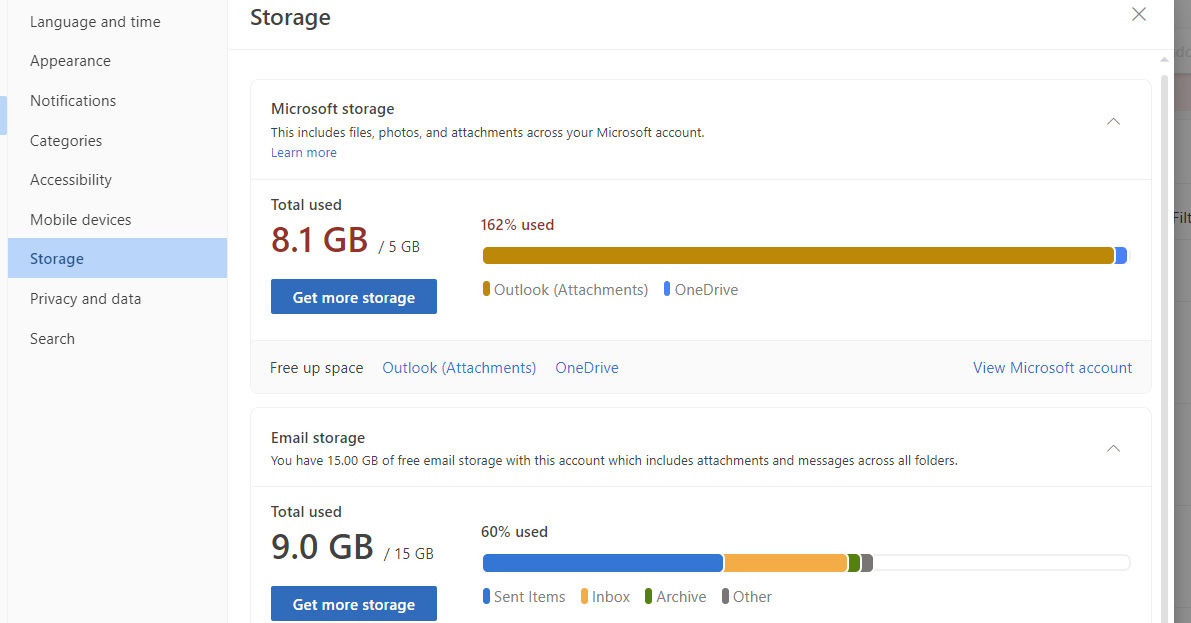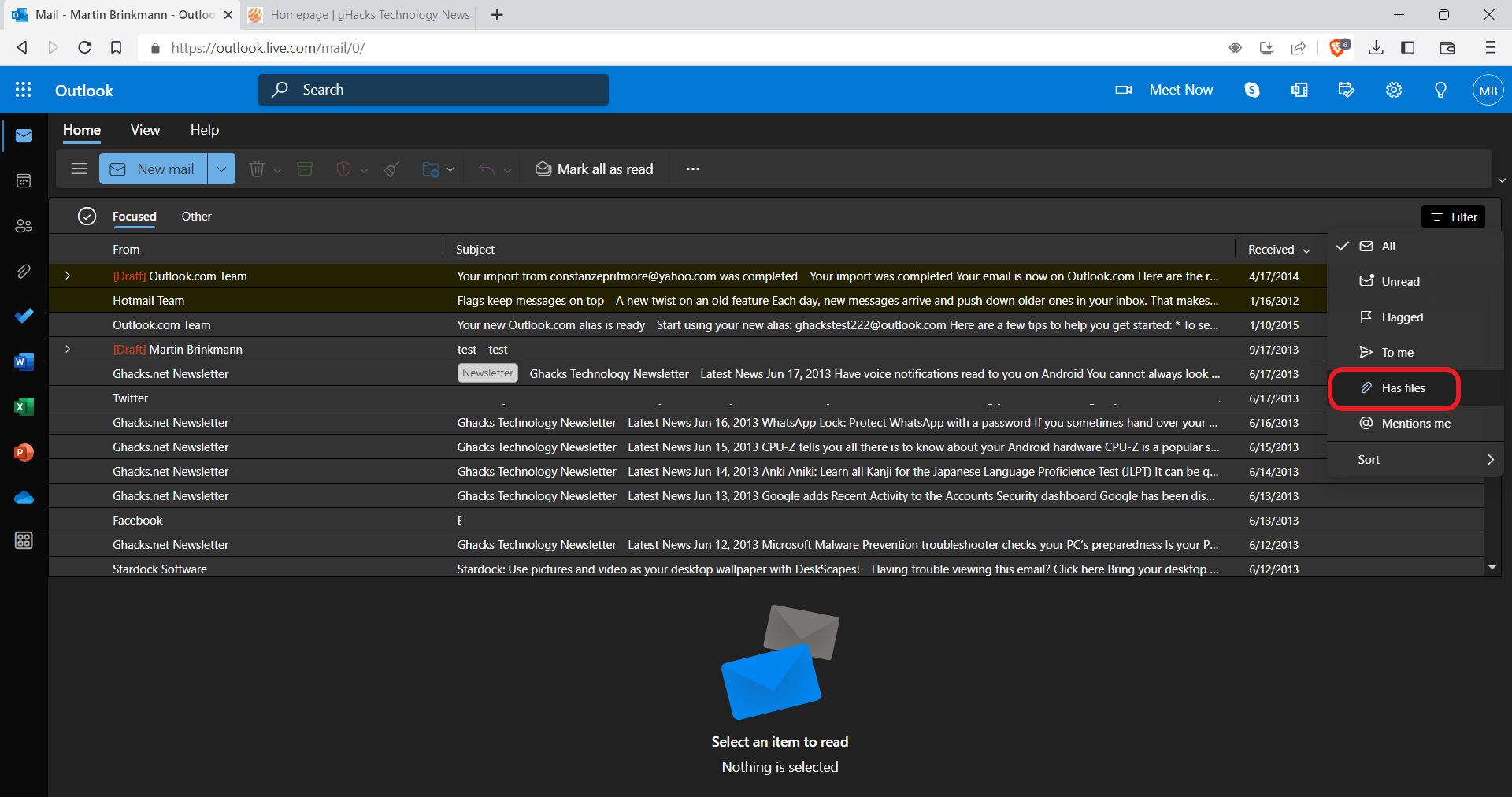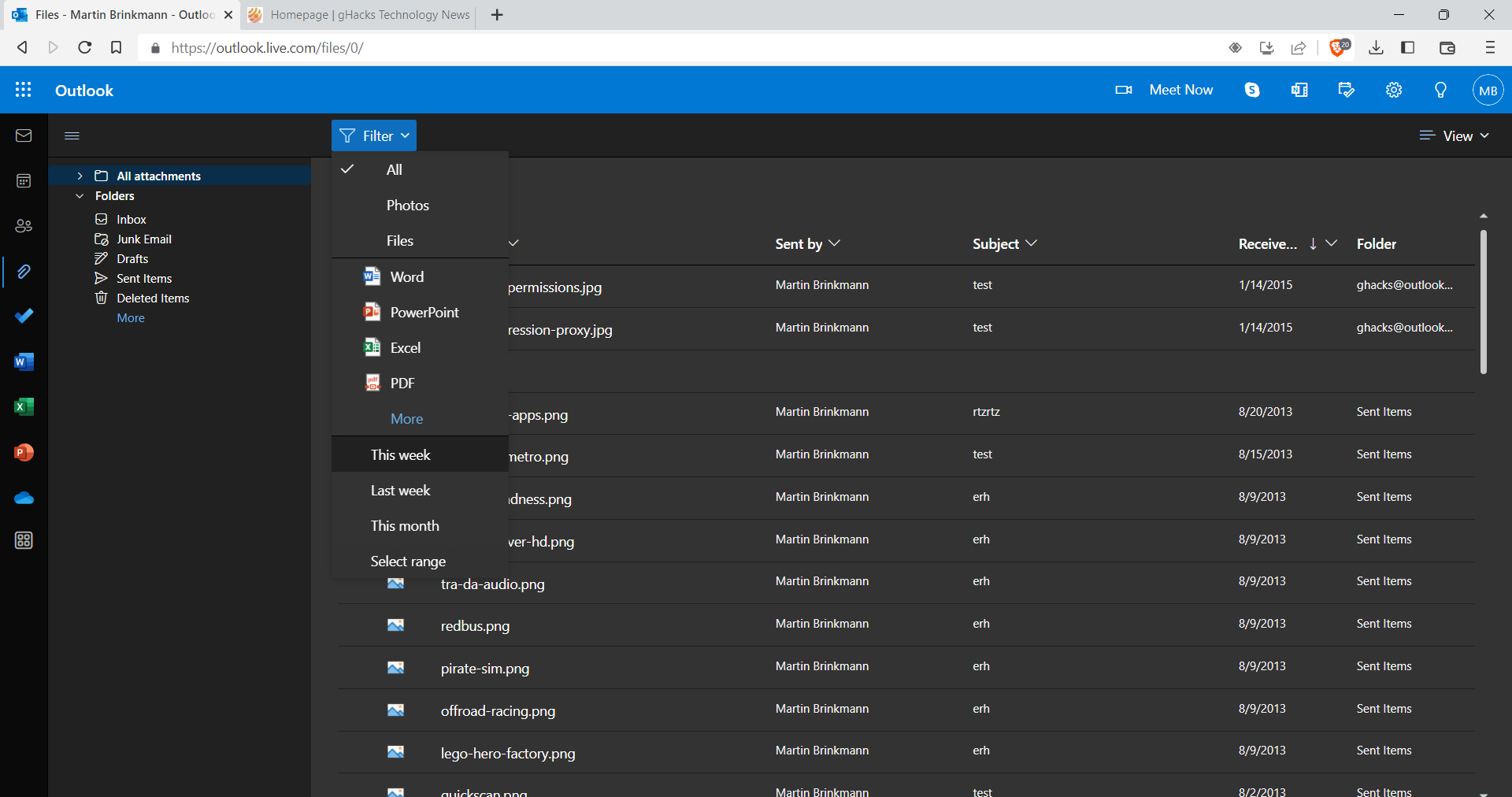A group of Outlook users has run into email sending and receiving issues since February 2023. The issue is linked to a change that Microsoft announced some time ago and came into effect on February 1, 2023 in a staged rollout.
Basically, what Microsoft did was add Outlook attachments data to the available storage space on OneDrive. The change meant, for some users at last, that they suddenly found that they had exceeded their available storage quota.
Microsoft customers who sign-up for a free Microsoft Account get 5 gigabytes of storage space. Grandfathered account may have access to more, for instance 15 gigabytes, the previous limit, or more thanks to certain promotions in the past that rewarded participants with additional permanent storage space.
Microsoft confirmed the change on this support page. There, the company notes that "starting February 1, 2023, cloud storage used across Microsoft 365 apps and services will include Outlook.com attachments data and OneDrive data". Consequently, the update "may reduce how much cloud storage you have available to use with your OneDrive".

Microsoft customers who go over the capacity will have their ability to send and receive emails in Outlook.com disrupted.
Microsoft claims that these changes ensure that it offers "the best experience", without explaining how that change is beneficial to customers.
Reports from affected Microsoft customers, here and here, confirm that many have been caught off guard. Some may not have gotten the memo that Outlook data counts against the available cloud storage quota of their Microsoft account.
Affected users have only three options to deal with the issue:
- Buy additional storage space by upgrading to a higher tier OneDrive or Microsoft 365 plan.
- Remove attachments and other large data from Outlook to free up space and get used storage below the quota. Outlook emails may also be downloaded first to the local system, or archived using Mailstore Home or other email archiving solutions.
- Switch to another email provider.
Microsoft's calculation, probably, is that many customers may not have the desired to go through their emails to remove large attachments to restore the ability to send and receive files. Upgrading to a paid plan resolves the issue immediately. Switching to another email provider is even more complex, as it may require changing email addresses at services and sites, and informing contacts about the change.
The web-based version of Outlook has a filter that is useful when it comes to finding emails with attachments.

To use it, open the main Outlook website and select Filter > Has Files. This displays only emails with file attachments. There is also a Filters listing, which may be even more useful, as it lists file attachments exclusively.
To access it, select the Files icon of the left sidebar in Outlook. Outlook lists all file attachments in a list. Filters are provided to filter by type or date. The one thing that is missing is to filter by size.

Closing Words
Five gigabytes of email storage is not really much, especially if it is shared with OneDrive. Microsoft has been pushing OneDrive on Windows 10 and 11, and if used, may also use up storage.
Cloud is lucrative for companies and many attempt to push these offerings. Microsoft's strategy is to promote its cloud storage service OneDrive and Microsoft 365 in Windows, and to make changes to existing products that impact users negatively. This is done to get a portion of these users to sign-up for paid cloud storage services.



3175x175(CURRENT).thumb.jpg.b05acc060982b36f5891ba728e6d953c.jpg)
Recommended Comments
Join the conversation
You can post now and register later. If you have an account, sign in now to post with your account.
Note: Your post will require moderator approval before it will be visible.